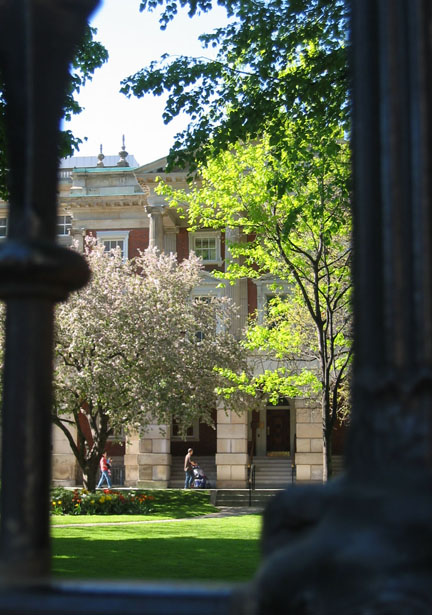Two exonerated Torys LLP lawyers put their legal tabs in defending themselves in Law Society of Upper Canada disciplinary hearings at almost $4 million, but a hearing panel has determined [they’ll each get just $250,000 after finding the regulator should have known its case had no reasonable chance of success.

The May 23
decision dealt with conflict of interest allegations against Torys’ Darren Sukonick and Beth DeMerchant, who is now retired, in relation to their work on the sale of the Hollinger group of companies between 2000 and 2003 to companies including CanWest and Osprey Media. In October 2013, the panel
said it had no evidence to find the pair guilty of professional misconduct, a finding the law society has appealed.
The lawyers have since sought costs, and on Friday, the panel ruled they will each get a fraction of what they were asking for.
Among their arguments for costs, DeMerchant and Sukonick alleged shortcomings in the LSUC’s investigation. They noted, for example, the hearing panel pointed out the law society had called no one involved with the transaction, including CanWest in-house counsel Richard Leipsic. As the proceedings, which dated back to 2009, continued, counsel for the two lawyers began calling on the law society to drop the case.
“In our opinion, knowing that it had no evidence to counter that put forward by the lawyers, the law society owed a duty to re-evaluate its case,” wrote hearing panel chairman William Simpson in the cost decision.
He noted as of May 8, 2012, counsel for the lawyers had forwarded letters pointing out the law society had failed to interview people such as Leipsic despite their testimony they were available.
“It is our finding that, at least by the time it received the letter of May 8, 2012, the law society should have known that the proceedings had become unwarranted, as it had no reasonable chance of success,” wrote Simpson.
Among the other shortcomings, the costs decision cites the lack of “assistance of a corporate and commercial lawyer” to interpret some of the transactions raised at the hearing in the face of assertions by the lawyers that they had followed prevailing practices for external counsel.
“All of the witnesses called on behalf of the lawyers testified that it was usual, with sophisticated corporate client groups, that the external counsel would take no part in commercial negotiations and that the in-house counsel would brief the audit committee on the facts where the audit committee’s approval was sought for a related-party transaction. As it turned out, the law society never called any reply evidence disputing the evidence for the lawyers,” wrote Simpson.
“In our opinion, knowing that it had no evidence to counter that put forward by the lawyers, the law society owed a duty to re-evaluate its case.”
In the end, the LSUC panel considered five factors in awarding the lawyers costs: their complete co-operation; their “huge effort” in asking the LSUC to reconsider its case; the hardship they faced and the effect on their careers; the fact both sides conducted themselves professionally; and the fact the LSUC “never put forward an opinion based on the facts of this case.”
As for the amount of costs, the panel noted the lawyers provided no bill of costs but did put their total at $4 million, including time spent and disbursements. In coming to the $250,000 figure, the panel awarded costs for the 40 days of hearing after May 8, 2012, noting “this is not an arithmetical exercise” and referring to its “wide discretion” as to the actual amount, declined to award costs on a substantial indemnity basis.

 The May 23 decision dealt with conflict of interest allegations against Torys’ Darren Sukonick and Beth DeMerchant, who is now retired, in relation to their work on the sale of the Hollinger group of companies between 2000 and 2003 to companies including CanWest and Osprey Media. In October 2013, the panel said it had no evidence to find the pair guilty of professional misconduct, a finding the law society has appealed.
The May 23 decision dealt with conflict of interest allegations against Torys’ Darren Sukonick and Beth DeMerchant, who is now retired, in relation to their work on the sale of the Hollinger group of companies between 2000 and 2003 to companies including CanWest and Osprey Media. In October 2013, the panel said it had no evidence to find the pair guilty of professional misconduct, a finding the law society has appealed.